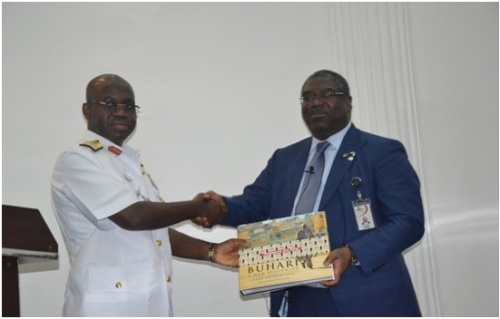FIRS Chairman Buttresses Impact of Taxation on National Development In Nigeria

The Executive Chairman, Federal Inland Revenue Service, Mr William Babatunde Fowler has emphasized that taxation is a catalyst to a sustainable National Development. He made this remarks when he delivered a lecture to participants of Course 26 at the National Defence College Nigeria. The title of his lecture was tagged “Impact of Taxation on National Development in Nigeria, the Federal Inland Revenue Service in Perspective”. While delivering the lecture, he said government the world over need money to finance their expenditure, which includes infrastructure and Social Services.
The Executive Chairman reiterated that there are two major ways for government to finance its expenditure that is, through taxation and borrowing. He however, argued that taxation is deemed preferable to borrowing as debt has to be repaid usually with interest and other debt servicing obligations which can sometimes create additional burden on government. Mr Fowler further asserted that most developed economies of the world are tax-based economies, while resource-based economies are either developing or underdeveloped and are usually faced with revenue shortfall when the prices of their natural resources drop.
In another development, he laid the premise that studies have shown that the extent to which an economy is able to grow sustainably and develop depends to a large extent on its ability to generate tax revenue to finance its expenditure and the efficiency of its tax system. He also disclosed that taxes and levies collected by Federal, State and Local Governments include Withholding Tax, Capital Gains Tax, Company Income Tax, Pay as You Earn or Personal Income Tax and Stamp Duties Tax. Other taxes, he said include, Petroleum Profit Tax, Education Tax and Technology Levy. The Executive Chairman said, amidst the relevance of taxation on national economy, the Federal government faces revenue generation challenges. These challenges, he said include Tax Evasion and Avoidance, Poor Inter Agency Collaboration with revenue Stakeholders, Poor or absence of Record Keeping by Business Owners. Other challenges include operations outside the formally regulated monetary economy, lack of Patriotism and positive Tax Culture and predominantly cash based transactions. The revenue generation challenges faced by States and Local Governments, Mr Fowler said, includes poor information flow and systemic leakages. Poverty and Insecurity, Emphasis on crude oil by Government and Underdeveloped Tax System inherent in States and Local governments.
The Commandant, National Defence College, Rear Admiral Adeniyi Osinowo while delivering his remarks, thanked the Executive Chairman for the articulate, erudite and well-presented lecture at the highest military institution in Nigeria and Sub-Sahara region. Rear Admiral Adeniyi reiterated that taxation is key to any economy the world over. He advised that the Nigeria’s current revenue challenges has brought to the fore the need to diversify our revenue base at Federal, State and Local Government Levels. He concluded that tax and revenue authorities need to focus on closing current gaps in the revenue collection system while also identifying new as well as untapped source of revenue generation for economic prosperity in the Nation.





